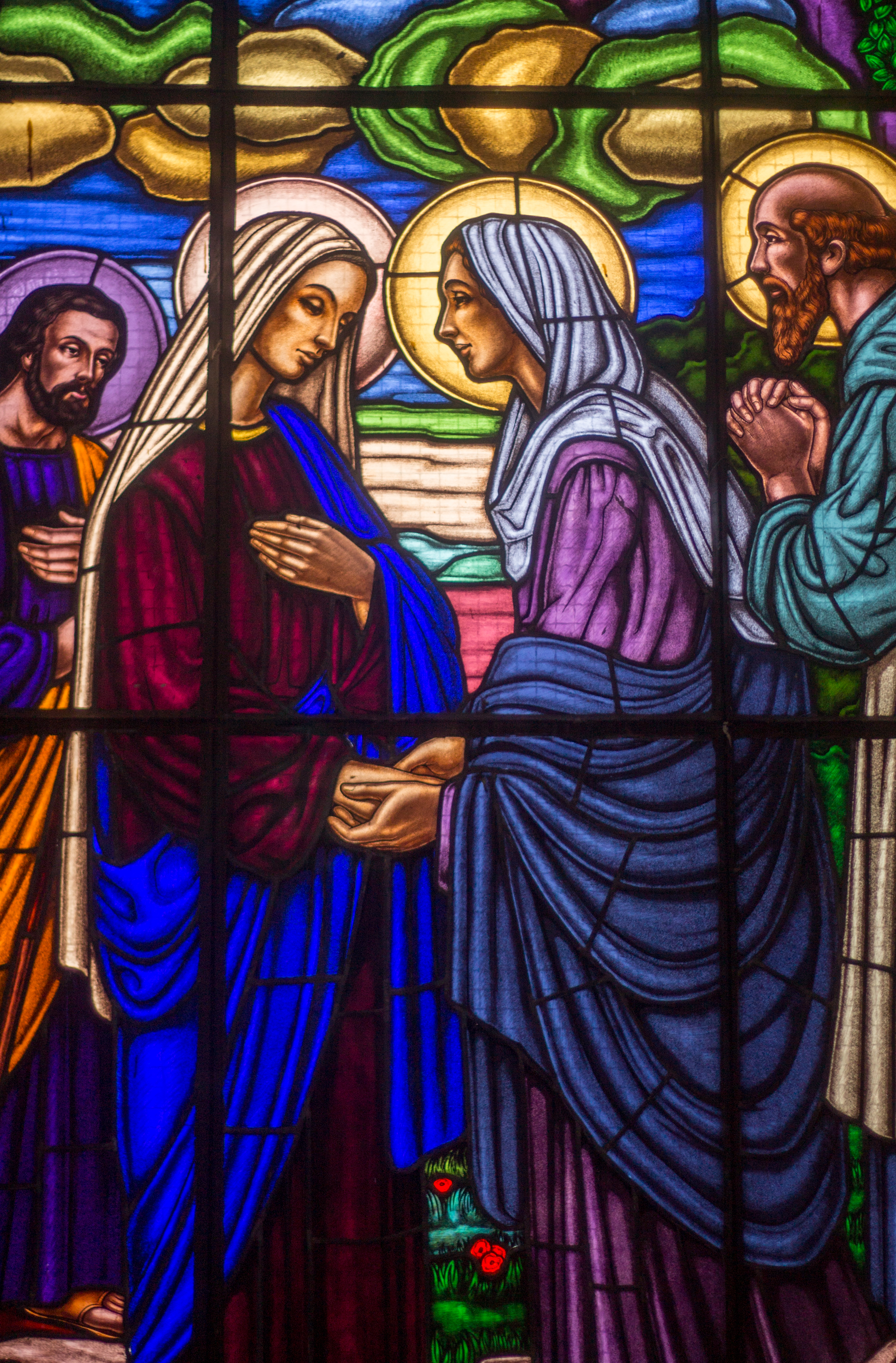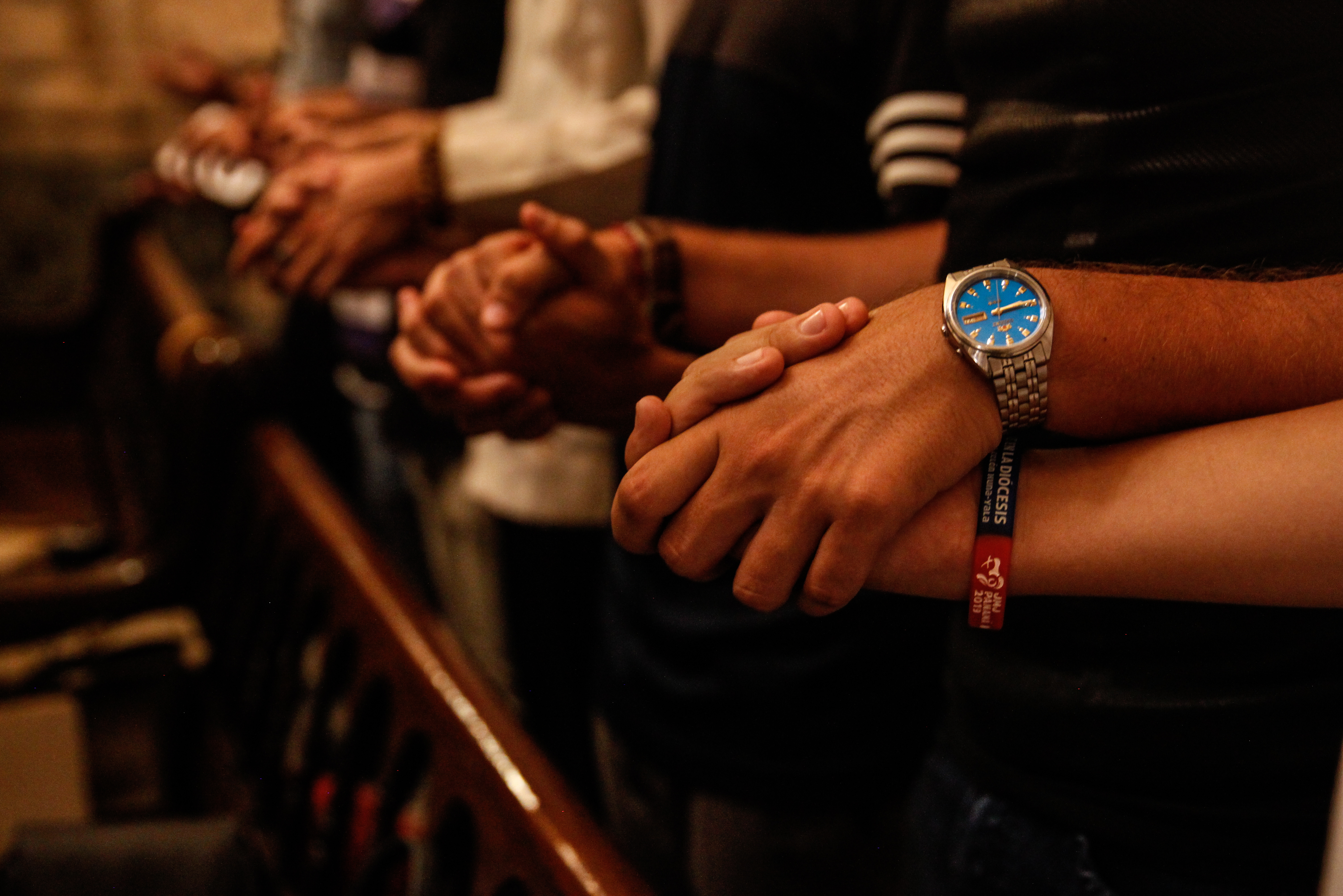It’s so easy to take for granted what and who we have in our lives.
In today’s First Reading, we read of Tobit, a generous man who sticks to the Law of the Lord, even burying the poor regardless of being mocked.
And yet, when his wife is given a “bonus” of a goat from her boss, he thinks that she has stolen it and gets angry, demanding she return it. Tobit’s wife’s response is almost chilling:
Where are your charitable deeds now?
Where are your righteous acts?
It reminds Tobit that even in all his generosity and actively following the Lord’s commandments he does not bring the same generosity and truth-seeking into his own home and relationship with his wife. Even all his acts of good deeds with the poor, stop when he reaches the entry of his own home.
Unfortunately, I can relate to Tobit. I spend so much of my time at work being pleasant and fun to be around but when I get home, everything annoys me and even though my boyfriend is kind enough to take me out to eat for dinner, I huff when he asks “What do you want to eat?” Or when a friend calls me to hang out, I reply with a halfhearted “yeah, sure.”
Here is the person that knows me and loves me and has always been there for me, and yet I take them for granted. How often do I do the same with the Lord?
I wonder how much of my time is spent praising the Lord and then also resenting the Lord’s will not being aligned with my own. How often do I ask things of the Lord, which are granted in miraculous ways, but not even miracles are enough for me to praise him all the days of my life?!
It’s almost easier to be continuously kind to strangers than to those who know us the most. It is easy to see the big miracles but ignore the little miracles of life and love that the Lord affords us each and every day.
So today I challenge you to open your eyes to these miracles and to praise Him for all the little things. Make an effort to bring His light and His love into your home to those who know you the best.
Es muy fácil tomar por hecho qué y quién tenemos en nuestras vidas.
En la Primera Lectura de hoy, leemos acerca de Tobías, un hombre generoso que se apega a la Ley del Señor, incluso enterrando a los pobres sin importarle las burlas.
Y, sin embargo, cuando su esposa recibe un “bono” de una cabra de su jefe, él piensa que se la ha robado y se enfada y le exige que se la devuelva. La respuesta de la esposa de Tobit es casi escalofriante:
¿Ahora dónde están tus obras de caridad?
¿Dónde están tus actos justos?
Le recuerda a Tobías que incluso con toda su generosidad y siguiendo activamente los mandamientos del Señor, él no trae la misma generosidad y búsqueda de la verdad a su propio hogar y a la relación con su esposa. Incluso todos sus actos de buenas obras con los pobres, se detienen cuando llega a la entrada de su propia casa.
Desafortunadamente, puedo relacionarme con Tobit. Paso gran parte de mi tiempo en el trabajo siendo agradable y divertida, pero cuando llego a casa, todo me molesta y, aunque mi novio tiene la amabilidad de invitarme a cenar, resoplo cuando me pregunta “¿Qué quieres comer?” O cuando un amigo me llama para pasar el rato, respondo con poco entusiasmo “sí, claro”.
Aquí está la persona que me conoce y me ama y siempre ha estado ahí para mí y, sin embargo, la tomo por hecho. ¿Con qué frecuencia hago lo mismo con el Señor?
Me pregunto cuánto de mi tiempo lo dedico a alabar al Señor y luego también a resentir que la voluntad del Señor no esté alineada con la mía. ¡¿Cuántas veces pido cosas al Señor, que se me conceden de manera milagrosa, pero ni siquiera los milagros me bastan para alabarle todos los días de mi vida?!
Es casi más fácil ser continuamente amable con los extraños que con los que más nos conocen. Es fácil ver los grandes milagros pero ignorar los pequeños milagros de vida y amor que el Señor nos regala cada día.
Así que hoy te desafío a que abras los ojos a estos milagros y lo alabes por todas las pequeñas cosas. Haz un esfuerzo para traer Su luz y Su amor a tu hogar a aquellos que te conocen mejor.
Image Credit: Hello I’m Nik, unsplash.com/photos/LUYD2b7MNrg
 Veronica Alvarado is a born and raised Texan currently living in Pennsylvania. Since graduating from Texas A&M University, Veronica has published various Catholic articles in bulletins, newspapers, e-newsletters, and blogs. She continued sharing her faith after graduation as a web content strategist and digital project manager. Today, she continues this mission in her current role as communications director and project manager for Pentecost Today USA, a Catholic Charismatic Renewal organization in Pittsburgh.
Veronica Alvarado is a born and raised Texan currently living in Pennsylvania. Since graduating from Texas A&M University, Veronica has published various Catholic articles in bulletins, newspapers, e-newsletters, and blogs. She continued sharing her faith after graduation as a web content strategist and digital project manager. Today, she continues this mission in her current role as communications director and project manager for Pentecost Today USA, a Catholic Charismatic Renewal organization in Pittsburgh.






 Sheryl is happy to be the number 1 cheerleader and supporter for her husband, Tom who is a candidate for the Permanent Diaconate in the Diocese of Kalamazoo. They are so grateful for the opportunity to grow together in this process. Sheryl’s day job is serving her community as the principal for St. Therese Catholic School in Wayland, Michigan. Since every time she thinks she gets life all figured out, she realizes just how far she has to go, St. Rita of Cascia is her go-to Saint for intercession and help. Home includes Carlyn, a very, very goofy Golden Retriever and Lucy, our not-so-little rescue puppy.
Sheryl is happy to be the number 1 cheerleader and supporter for her husband, Tom who is a candidate for the Permanent Diaconate in the Diocese of Kalamazoo. They are so grateful for the opportunity to grow together in this process. Sheryl’s day job is serving her community as the principal for St. Therese Catholic School in Wayland, Michigan. Since every time she thinks she gets life all figured out, she realizes just how far she has to go, St. Rita of Cascia is her go-to Saint for intercession and help. Home includes Carlyn, a very, very goofy Golden Retriever and Lucy, our not-so-little rescue puppy. 
 Merridith Frediani loves words and is delighted by good sentences. She also loves Lake Michigan, dahlias, the first sip of hot coffee in the morning, millennials, and playing Sheepshead with her husband and three kids. She writes for Catholic Mom, Diocesan.com, and her local Catholic Herald. Her first book Draw Close to Jesus: A Woman’s Guide to Adoration is available at Our Sunday Visitor and Amazon. You can learn more at
Merridith Frediani loves words and is delighted by good sentences. She also loves Lake Michigan, dahlias, the first sip of hot coffee in the morning, millennials, and playing Sheepshead with her husband and three kids. She writes for Catholic Mom, Diocesan.com, and her local Catholic Herald. Her first book Draw Close to Jesus: A Woman’s Guide to Adoration is available at Our Sunday Visitor and Amazon. You can learn more at 
 Tami Urcia grew up in Western Michigan, a middle child in a large Catholic family. She spent early young adulthood as a missionary in Mexico, studying theology and philosophy, then worked and traveled extensively before finishing her Bachelor’s Degree in Western Kentucky. She loves tackling projects, finding fun ways to keep her little ones occupied, quiet conversation with the hubby and finding unique ways to love. She works full time, is a guest blogger on
Tami Urcia grew up in Western Michigan, a middle child in a large Catholic family. She spent early young adulthood as a missionary in Mexico, studying theology and philosophy, then worked and traveled extensively before finishing her Bachelor’s Degree in Western Kentucky. She loves tackling projects, finding fun ways to keep her little ones occupied, quiet conversation with the hubby and finding unique ways to love. She works full time, is a guest blogger on 
 Emily Jaminet is a Catholic author, speaker, radio personality, wife, and mother of seven children. She earned a bachelor’s degree in mental health and human services from the Franciscan University of Steubenville. She is the co-founder of
Emily Jaminet is a Catholic author, speaker, radio personality, wife, and mother of seven children. She earned a bachelor’s degree in mental health and human services from the Franciscan University of Steubenville. She is the co-founder of 


 David Dashiell is a freelance author and editor in Nashville, Tennessee. He has a master’s degree in theology from Franciscan University, and is the editor of the anthology
David Dashiell is a freelance author and editor in Nashville, Tennessee. He has a master’s degree in theology from Franciscan University, and is the editor of the anthology 
 Allison Gingras (
Allison Gingras ( 
